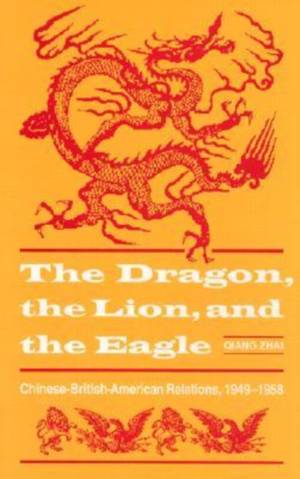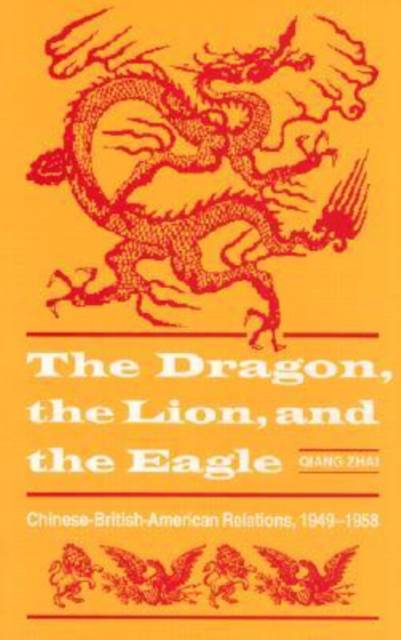
- Afhalen na 1 uur in een winkel met voorraad
- Gratis thuislevering in België vanaf € 30
- Ruim aanbod met 7 miljoen producten
- Afhalen na 1 uur in een winkel met voorraad
- Gratis thuislevering in België vanaf € 30
- Ruim aanbod met 7 miljoen producten
Zoeken
Dragon, the Lion and the Eagle
Chinese-British-American Relations, 1949-58
The Kent State University Press
Hardcover
€ 33,95
+ 67 punten
Omschrijving
A study in international history and comparative analysis of the relations between China, Britain and America, in the period from 1949 to 1958. The author draws upon previously-classified documents and private papers to give a view of the Cold War from Chinese and Western standpoints.
Specificaties
Betrokkenen
- Auteur(s):
- Uitgeverij:
Eigenschappen
- Productcode (EAN):
- 9780873384902
- Verschijningsdatum:
- 15/06/1994
- Uitvoering:
- Hardcover
- Afmetingen:
- 160 mm x 236 mm
- Gewicht:
- 651 g

Alleen bij Standaard Boekhandel
+ 67 punten op je klantenkaart van Standaard Boekhandel
Beoordelingen
We publiceren alleen reviews die voldoen aan de voorwaarden voor reviews. Bekijk onze voorwaarden voor reviews.








